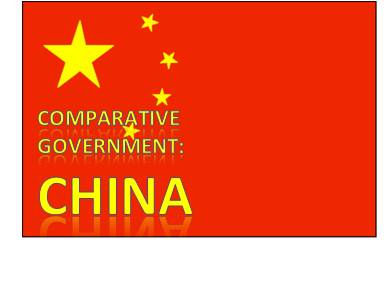
In a recent Economist article titled: Red mist: Who matters in the world's second-largest financial system is barely understood, the author explains some of the inner workings of China's financial institutions, and how the government controls them.
Not only is the functioning of the Chinese banks mysterious, but most people will not even discuss it in any way that may be recorded--only face to face. China has various secrecy laws that may be violated if bank functions are discussed.
All credit is controlled by the government. The banks collect it, and must pay taxes on it, but its existence is dictated by the government. Recently, lending has been tightened up, and "favored industrial companies have been getting urgent calls from their bankers demanding that they immediately scoop up their credit needs for months to come, or be subject to a freeze of uncertain duration." Some loans, such as those over $500 million are thought to be entirely controlled by the state, and the banks are simply used for the transactions.
While most banks are not directly run by the government, regulators attend major meetings and carry the title of "head of discipline." One exception to this rule is China Development Bank, "run by a powerful government official, Chen Yuan" The government can also move executives from one bank to another at its will. sometimes they will even move the executive of one bank to its main competitor, which happened with Shang Jiangou in 2006. Some believe this move had to do with Guo Shuqing, China Construction Bank's chairman, being rumored to be running for a political position.
Many times, the banks with executives who do not move around have more power, and even bid on acquisitions outside of China. Sometimes this is stopped, and suspected to be blocked by the government, such as when ICBC dripped out of bidding for Hong Kong's Wing Lung Bank in 2008.While some financial institutions have autonomy, others see their link to the state as a useful asset.
All important decision are technically made by government officials, even those that would be considered private matters in any country other than China.
This system creates difficulty in the worlds economy. All of China's economic decisions are based on what the government wants, which means foreign and domestic policy. All of the major decisions are made in a way which benefits China. "During the depths of the financial crisis, when money was being sought for Morgan Stanley from CIC, Hank Paulson, then America’s treasury secretary, called Mr Wang [the vice-premier responsible for the financial sector] for his blessing." This type of international political and economic clout put China in a position to control increasing amounts of the world.







Your analysis gave me a much better understanding of how the Chinese financial system works. The government has far more control over the banks than I realized--I can see where that can create difficulties.
ReplyDeleteDo you think that there are any advantages to this model at all?